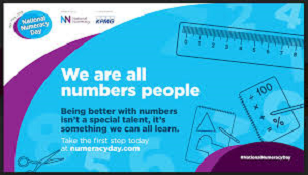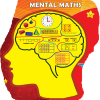- Empty cart.
- Continue Shopping
“Good numeracy is the best protection against unemployment, low wages and poor health.”

Why is numeracy important?
“Good numeracy is the best protection against unemployment, low wages and poor health.”
Andreas Schleicher
OECD

We use maths in every aspect of our lives at work and in practical everyday activities at home and beyond. We use maths when we go shopping or plan a holiday, decide on a mortgage or decorate a room. Good numeracy is essential to us as parents helping our children learn, as patients understanding health information, as citizens making sense of statistics and economic news. Decisions in life are so often based on numerical information; to make the best choices, we need to be numerate.
Numeracy and the individual
Numeracy in everyday life
We use numeracy every day in all areas of our lives. Our confidence and ability with numbers impacts us financially, socially, and professionally. It even affects our health and wellbeing.
Some examples of the ways we use maths every day include:
- Working out how many minutes until our train
- Increasing a recipe to serve extra guests
- Checking we’ve received the right change
- Working out how much to tip in a restaurant
- Setting and keeping to a budget
- Helping children with homework
- Managing our diet and nutrition
- Measuring medicine doses
- Making sense of statistics and graphs in the news
Poor numeracy can affect people’s confidence and self-esteem. Testimonials from our learners have demonstrated that improving numeracy directly contributes to growth in personal and social confidence.
The growing need for numeracy
Our need for a good level of numeracy only increases as we get older.
When we start thinking about mortgages, the financial implications of borrowing money, interest rates and pensions it’s essential that we’re numerate enough to make informed decisions.
So many of the important decisions we must make as adults are based on numbers. This means that people who are not confident and capable with numbers are estimated to be worse off than those with good numeracy skills. A report in 2014 for National Numeracy by Pro Bono Economics found that the average cost to individuals with poor numeracy is £460 a year.
The impact of poor numeracy
There is a lot of evidence linking low numeracy skills with poor outcomes:
- Employment
People with poor numeracy skills are more than twice as likely to face unemployment
- Wages
Recent data by the OECD show a direct relationship between wage distribution and numeracy skills - Money
Good numeracy is linked to a range of positive financial behaviours including saving frequency and keeping up with bills - Health
In OECD and UK basic skills reports, the correlation between poor numeracy and poor health is clear. Data from the British Cohort Studies have shown that there is also a link between depression and poor numeracy
- Social, emotional and behavioural difficulties
Children with these problems are more likely to struggle with numeracy, even taking into account factors such as home background and general ability
- School exclusions
Pupils beginning secondary school with very low numeracy skills are more likely to face exclusion
- Truancy
14-year-olds who have poor maths skills at 11 are more than twice as likely to play truant
- Crime
A quarter of young people in custody have a numeracy level below that expected of a 7-year-old. Similarly, 65% of adult prisoners have numeracy skills at or below the level expected of an 11-year-old









